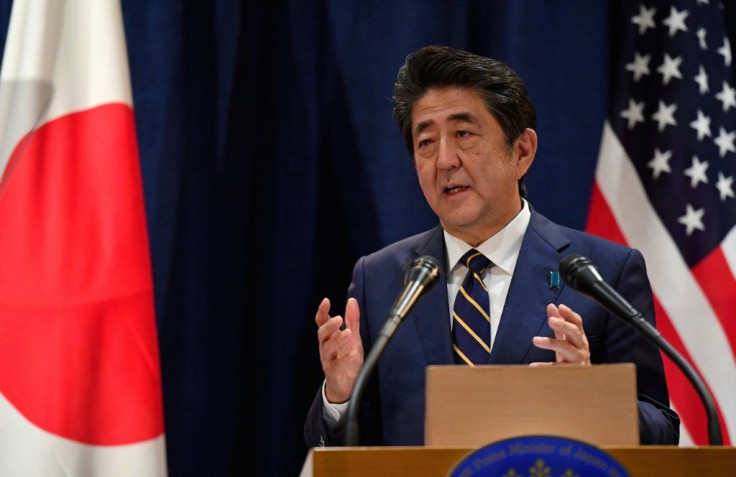Japan Sending Troops And Warship To Mideast Amid Heightened Iran Tensions

KEY POINTS
- Japan to send Self Defense Forces ship to Persian Gulf
- Mission is separate from the U.S.-led mission to protect shipping
- Japanese public opinion sharply divided over move to send warship
Japanese Prime Minister Shinzo Abe has made the decision to deploy troops to the Middle East with the purpose of protecting the country's assets in the perpetually troubled Persian Gulf.
“Tensions are rising in the Middle East and I am deeply worried about the situation,” Abe said. “Further escalation should be avoided, and I call on all parties concerned to exhaust all diplomatic efforts to ease tensions.”
Japan is in a precarious position because its only military ally is the U.S., but it gets the bulk of its oil from the Persian Gulf and has had a historically warm relationship with Iran. Their two leaders exchanged visits in 2019. Abe became the first sitting Japanese prime minister to visit Iran in 40 years and in December, Iranian President Hassan Rouhani made a visit to Tokyo, becoming the first Iranian president to visit Japan in 19 years.
Tensions between the U.S. and Iran escalated when Iranian commander Gen. Qasem Soleimani was killed on Friday, Jan. 3, in an American drone strike. The strike was in response to attacks on the American embassy in Baghdad by supporters of an Iran-backed Iraqi Shia militia group.
On Dec. 27, one week before the killing, Japan’s cabinet approved sending a SDF (Self-Defense Forces) ship to waters around the Middle East on an intelligence-gathering mission. Japanese officials have maintained the move to be separate from U.S.-led operations in the area, which U.S. Secretary of State Mike Pompeo had invited Japan to join.
Public opinion in Japan is divided. Two surveys in December showed stark differences with the respondents. The Asahi newspaper found 37% of respondents in favor and 44% against the ship movement while the Nikkei newspaper found 49% of respondents in favor and 38% against. This difference is likely due to the opposing political views of the publications.
Abe's comments were made at a news conference Monday shortly after Iran announced its intentions to ignore limits on uranium enrichment that were part of a 2015 nuclear deal. The deal made during former U.S. President Barack Obama's time as Commander in Chief resulted in billions of dollars in cash and sanctions relief to Iran. Sanctions on oil exports were reinstated by President Donald Trump in 2018.
Trump continues to squabble with Iran and has threatened to target 52 Iranian cultural sites if Iran retaliates for Qasem Soleimani’s death. Trump is gambling that the Iranians will respect a show of strength more than the appeasement attempts of his predecessor.
So far, Japan continues to back the Iran nuclear deal but has complied with sanctions by halting oil imports from the country, according to government data.c
© Copyright IBTimes 2025. All rights reserved.





















